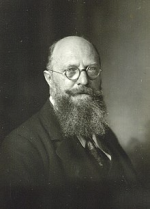DrZoidberg
Contributor
I don't see the point of continuing talking with you about this. I find your world view and definitions bizarre. I just don't know what to say as a response.On the contrary, saying that socialism is any system that has more generous social spending than US is using a rubber definition and is stupid. For one, it includes many capitalist economies, like for example Sweden.That's just a stupid way of arguing. Let's create a rubber definition of socialism that only applies to failed economies. That way socialism is always a failure. Hooray. A win for capitalism.
My definition, the actual definition, is cleaner:
Capitalism is an economic system where means of production are mostly privately owned and controlled.
Socialism is an economic system where means of production are mostly publicly owned and controlled.
The two concepts are related. Communism is the ideal end stage of socialism where the state itself withers away. That's why the actually existing countries controlled by communist parties were called "socialist" and not "communist". Communism hasn't been achieved yet.When the concept of socialism was born in the 19'th century and as socialist political parties took power around the world and through trial and error the meaning of word evolved. In the 19'th century socialism and communism were synonyms. In the beginning of the 20'th century the two concepts split apart. You're talking about communism.
There are many jokes about the distinction, like this Radio Yerewan joke:
This is Armenian Radio. Our listeners asked us, "When the final phase of socialism, namely communism, is built, will there still be thefts and pilfering?"
We're answering: "No, because everything will be already pilfered during socialism."
China is a weird case. They have pretty much abandoned socialism except for show and for single party dictatorship.But even that's starting to slide considering what's happening in China. In China the government officially owns everything. But in practice they, very much, respect private property.
So all countries are socialist now? Existence of public works does not make otherwise capitalist systems socialist, and neither does tolerance of small businesses turn otherwise socialist countries capitalist. It's about whether public or private ownership of production predominates in the economy.And there's no country on Earth where the government isn't legally able to seize private property if it's considered in the best interest of the government. Otherwise, how could we build infrastructure.
Post-Tito Yugoslavia was still socialist even though they allowed very small private businesses to operate because the economy was still mostly public. Sweden is still capitalist even though the government plays a bigger role than in the US.
It would be silly. Which is why Sweden is by no means a socialist country. It's like with Denmark where their PM was quick to contradict Bernie when he called them "socialist".Any country with social welfare, if we're to be strict about definitions, is a socialist country. But I think that's a bit silly, because it just confuses what we're talking about.
Denmark's prime minister says Bernie Sanders is wrong to call his country socialist
Vox said:"I know that some people in the US associate the Nordic model with some sort of socialism," [Danish Prime Minister Lars Løkke Rasmussen] said. "Therefore, I would like to make one thing clear. Denmark is far from a socialist planned economy. Denmark is a market economy."
In Rasmussen's view, "The Nordic model is an expanded welfare state which provides a high level of security to its citizens, but it is also a successful market economy with much freedom to pursue your dreams and live your life as you wish."
The very first paragraph of the article agrees with me.This article sums up the evolution of the concept.
Socialism - Wikipedia
en.wikipedia.org
Wikipedia said:Socialism is a left-wing[1] political, social, and economic philosophy encompassing a range of economic and social systems characterised by social ownership[2][3][4][5] of the means of production,[6][7][8][9] as opposed to private ownership.[5][10][11] It includes the political theories and movements associated with such systems.[12] Social ownership can be public, collective, or cooperative.[13] While no single definition encapsulates the many types of socialism,[14] social ownership is the one common element.[2][10][11] Socialisms vary based on the role of markets and planning in resource allocation, on the structure of management in organizations, and from below or from above approaches, with some socialists favouring a party, state, or technocratic-driven approach. Socialists disagree on whether government, particularly existing government, is the correct vehicle for change.[15][16]
To stubbornly cling to a definition of socialism that hasn't been relevant for over a hundred years... is just silly on a discussion forum. What's the point with doing that?
I think the definition that focuses on public/socialized ownership of means of production as defining characteristic of socialism is very much relevant. On the other hand, defining socialism as any economy with higher taxes and more generous public spending than the US has is quite silly.
To quote Deng Xiao Ping
"It doesn't matter if the cat is black or white. What matters if it catches mice".
It was a reference to Mao's fixation with ideological purity, rather than on having an experimental and empirical view on the economy.
I think you're so fixated on ideological purity that you miss out on reality. Reality isn't pure and neat. It's messy


